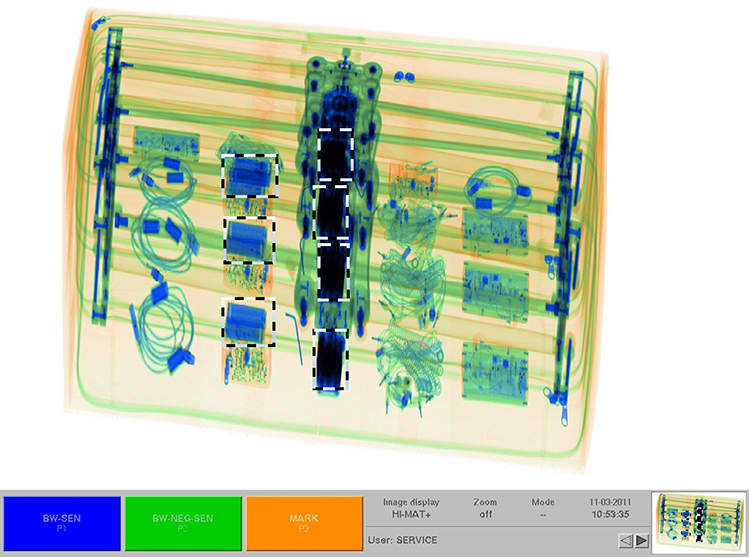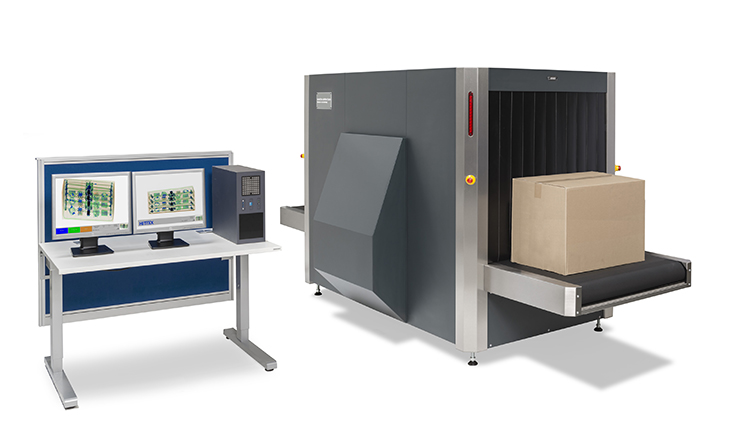Smiths Detection is utilising deep learning and deploying it to create effective automated solutions to detect prohibited items. Deep learning is said to provide two key things: better object detection capabilities and reduced pressure on resources – allowing for improved efficiency. By Ross Falconer
As air transport stakeholders embrace digital transformation, deep learning is set to become an important feature of future product design. Deep learning involves ‘teaching’ a computer to recognise patterns based on examples. It’s inspired by the structure and function of the human brain, which is made up of networked neurons. A neuron has multiple inputs (examples of what to identify) and a single output (an accurately detected object).
“Just like the human brain, the network must be trained,” explains Geert Heilmann, Software Engineer, Smiths Detection. “The simplest form of training is to provide examples: you let the network process data for which the result is already known and the individual weighting factors are determined so that the desired result is obtained. Many examples are put through this process and during training the network learns automatically to identify, or classify, different patterns or properties.”

Taking the deep learning approach, Smiths Detection is collaborating with customers to build a huge library of images from which the algorithms can ‘learn’ to detect many other items.
Deep learning means Smiths Detection will be able to design products that will quickly and accurately detect objects within baggage and parcels.
Indeed, Smiths Detection now offers reliable and accurate lithium battery detection as an option on the HI-SCAN 100100V-2is and 100100T-2is scanners, with other conventional X-ray systems to follow. Existing installations can also be upgraded onsite. This is the first module from a series of smart and adaptable algorithms for the automatic detection of an ever-expanding list of dangerous, prohibited and contra-band goods and substances.
Taking the deep learning approach, Smiths Detection is collaborating with customers to build a huge library of images from which the algorithms can ‘learn’ to detect many other items. “The lithium battery development follows IATA’s recommendations regarding Dangerous Goods and is aimed mainly at the air cargo sector,” explains Matt Clark, VP Technology, Smiths Detection. “It is designed to tackle the tangible threat posed by lithium batteries, which have the potential to ignite when airborne. In addition to extending this option to a full range of systems, we plan to expand these augmented detection capabilities to goods such as weapons, flammable liquids, currency and drugs.”
As it is particularly suitable for break-bulk cargo screening and is already popular with air freight handlers, the HI-SCAN 100100 series was first in line for the lithium battery option.

Smiths Detection now offers reliable and accurate lithium battery detection as an option on the HI-SCAN 100100V-2is and 100100T-2is scanners, with other conventional X-ray systems to follow.
Better object detection, reduced pressure on resources
Deep learning will provide two key things: better object detection capabilities and reduced pressure on resources – allowing for improved efficiency. It will do this by more accurately identifying objects hidden within parcels or baggage, both by finding those objects that might otherwise be missed and reducing the number of false positives.
“Another advantage for the customer is that unlike a human operator, the software always performs at the same level and does not become fatigued,” says Heilmann. “Initially, weapon-detection software would be used to support the operator.”
With an appropriate amount of data available, the algorithms can also be easily adapted to customer-specific needs, for example the detection of agricultural items and food.
Heilmann adds that in combination with Smiths Detection’s certified explosives detection algorithm and the deep learning algorithm for prohibited items the checkpoint can be highly automated. “Overall, deep learning will improve operations, customer experience and make infrastructure and people safer.”







